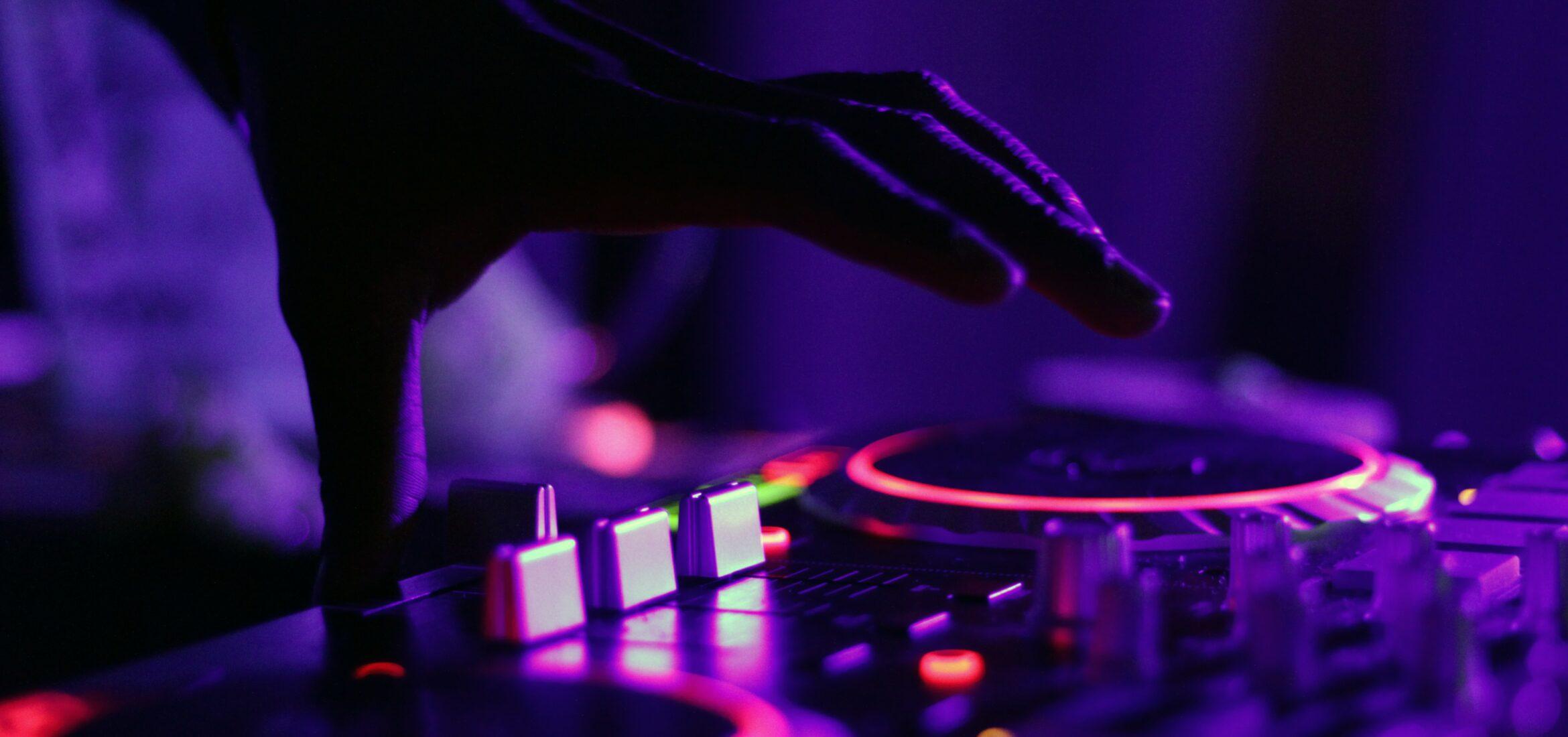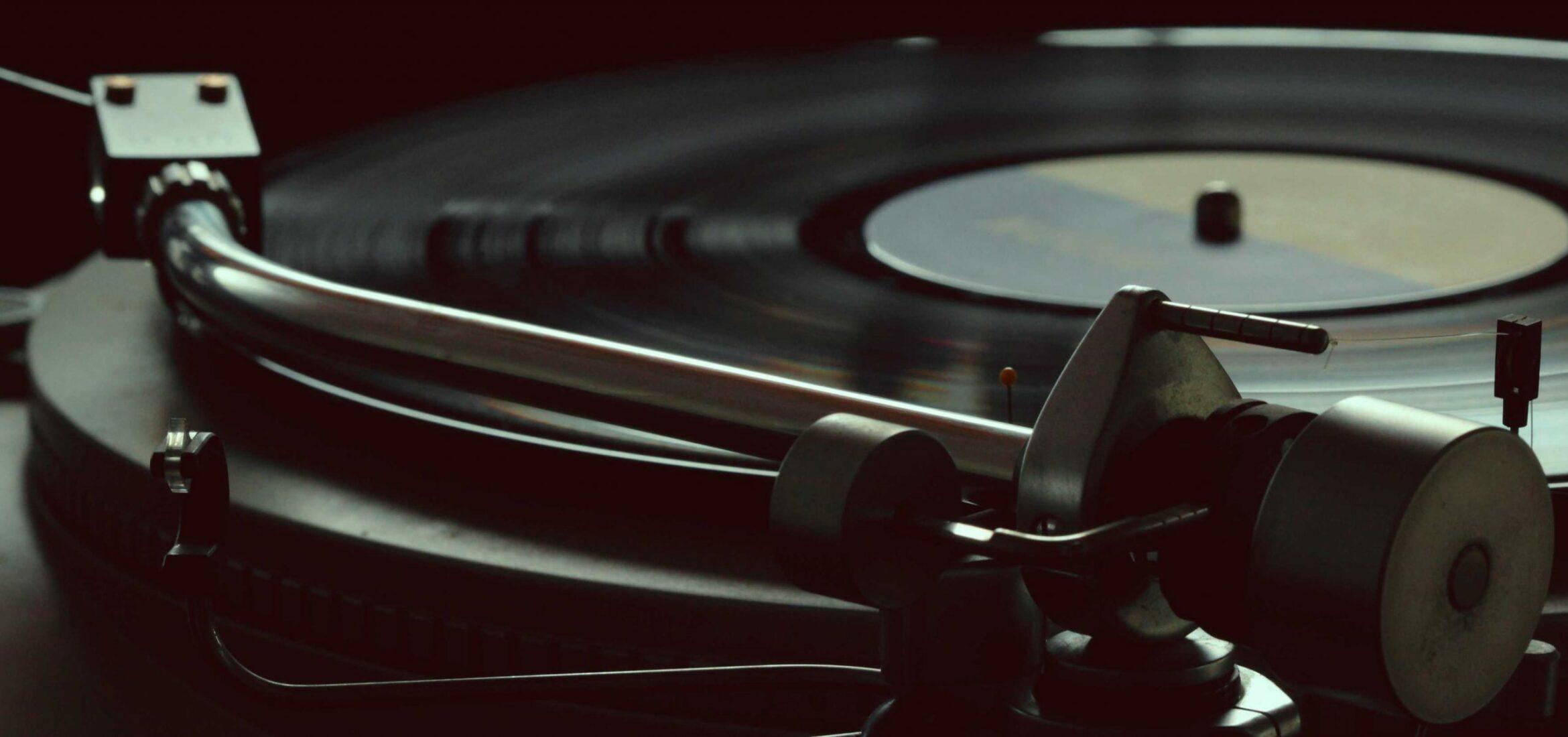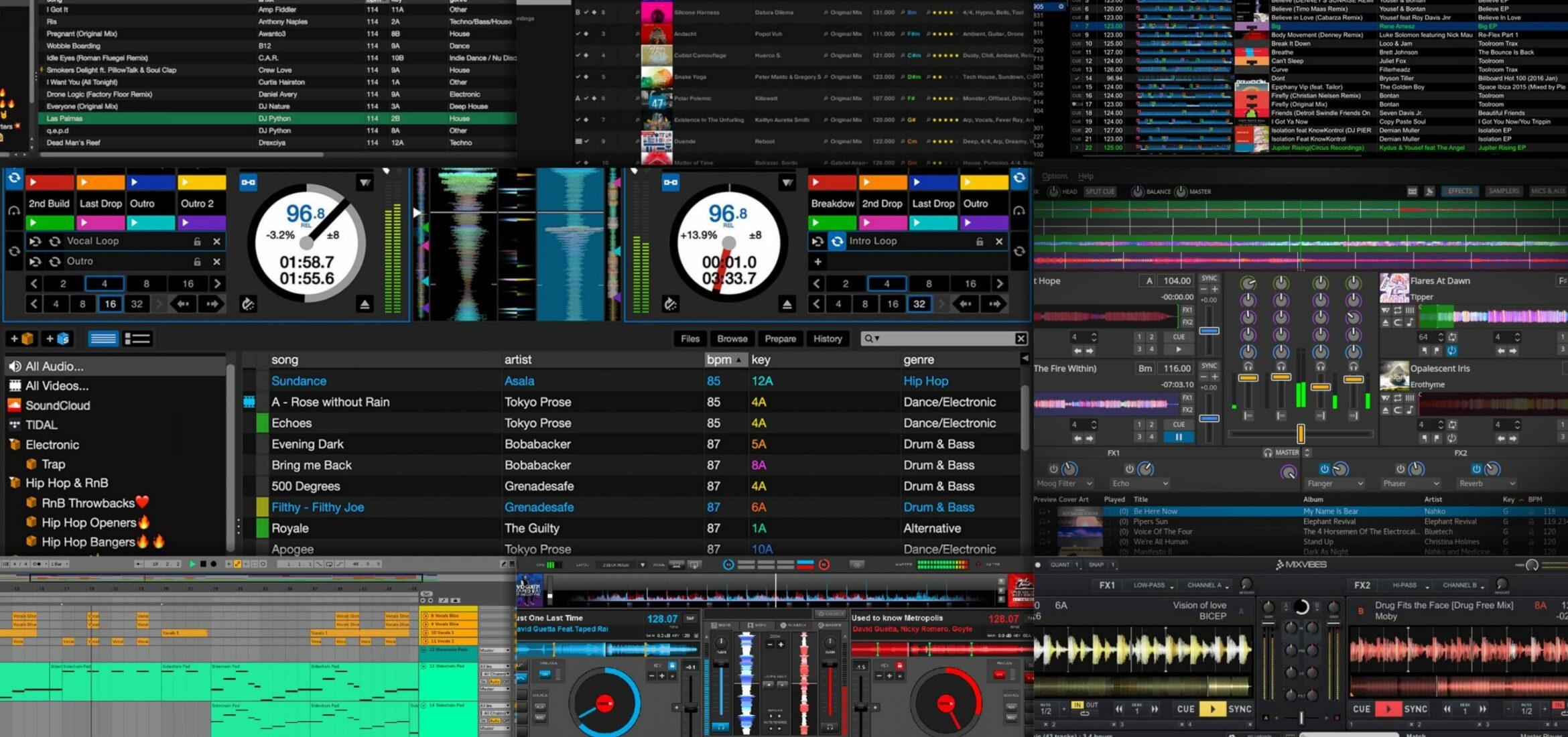DJ equipment is growing, and there is a lot of variety to pick from. I found myself a little surprised by all the digital DJ equipment out there, so I’ve been exploring the options to help you assess the situation.
So, what are the differences between a DJ controller and a DJ mixer? Essentially, A DJ Controller is a device that is both a turntable and a mixer, which also connects to DJ software, allowing for mixing music without requiring any other hardware besides the computer. A DJ Mixer is only a mixer, which requires turntables or CDJs to plug into each channel so you can mix music.
Now let’s dig at the basics of DJ controllers and DJ mixers. This article should cover most aspects to consider whether you are a novice looking to invest in DJ equipment or move to a more advanced digital DJ rig.
What is a DJ Mixer?
A DJ Mixer is a stand-alone hardware device, which is not reliant on DJ Software or a laptop. A mixer allows you to connect DJ turntables, CDJs, samplers, keyboards, beat pads, any other line-level sound source. The key difference is that a mixer is more versatile in allowing DJs to mix music from different sources. Control of EQ, volume levels, and simple effects allow DJs to mix songs.
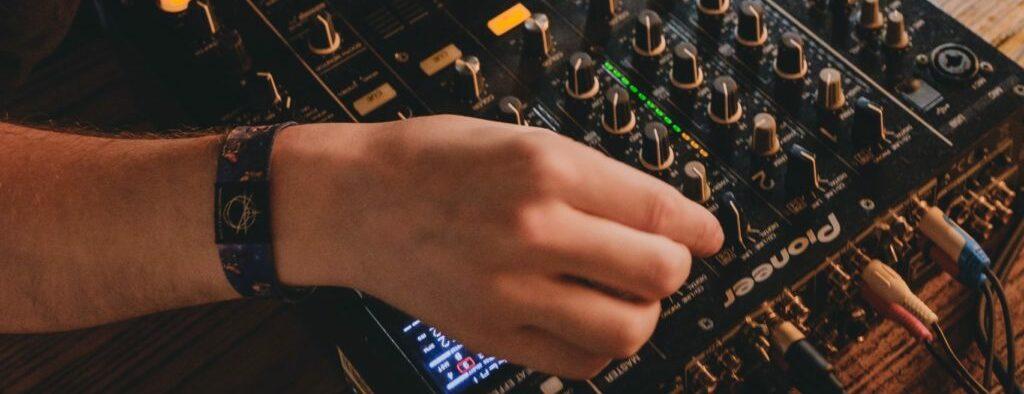
A typical DJ mixer includes 4 channels with EQ and volume controls per channel and channel effects, pan, and other control buttons. A crossfader, master channel, and master effects are available as well.
DJ Mixers usually have several analog inputs for different devices, such as phone inputs for turntables and line inputs for CDjs and other sources. They also usually include more than one stereo output. Professional mixers will also have an XRL microphone input with volume, dim, and EQ controls. Other features include Earth ground terminals to avoid noises and extra master outputs to record the session.
Benefits of DJ Mixers
So, what is the point of buying a DJ Mixer instead of a DJ Controller? In the end, the DJ Controler is a Mixer as well. But there’re a few benefits of splitting the cake!
Better quality
Usually, DJ Mixers are analog and don’t require D/A converters to function. Although this may seem irrelevant, it isn’t. D/A conversion is an expensive operation and requires computing power, and you are paying for that when you buy a device. If you don’t need DJ Controler features, a DJ Mixer will have much better quality for the price.
Autonomous
Unlike controllers, DJ Mixers don’t need DJ software to work, which can save you money in some situations. Depending on your current setup, you shouldn’t need a laptop either. CDJs and vinyl turntables will work fine without a laptop, and you are good to go with a simple USB stick.
More Control
DJ Mixers are built for DJs to mix songs, nothing else. This is why they will always be better at this than a device with multiple purposes. They will usually have more inputs, channels, effects, and controls to take over the mix with higher fidelity. Many DJ Controllers only have 2 channels and minimum controls for the mix itself, as they need these for other uses.
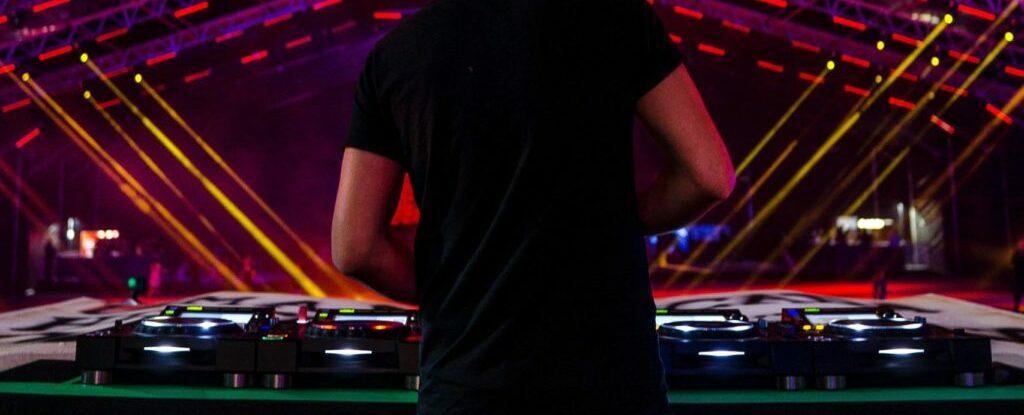
When should I buy a DJ Mixer?
If you already have some experience or are serious about becoming a DJ, a mixer will probably be the way to go. Apart from the benefits of using dedicated hardware for mixing, it is also considered more professional in the DJ scene. If you cannot perform with turntables or CDJs, it is unlikely that you’ll be hired to play in reputable venues.
What is a DJ Controller?
A DJ Controller is an all-in-one unit with a mixer and two turntables equipped for connecting to a laptop/PC with DJ applications. It usually only connects through USB and doesn’t have any analog inputs, although some do. It also may lack other features included in a mixer, such as an XLR microphone input and some controls.
Basic Functionality
It normally includes a 2-4 channel mixer and 2 turntable jog wheels so you can control the input source, similarly as you would with a CDJ. It also provides the basic EQ and volume controls per channel and a crossfader, as any mixer would.
Because a DJ Controller works in the digital domain, it usually includes a digital display to see the audio wave and other features that help preview the track and sync it with the current track playing.
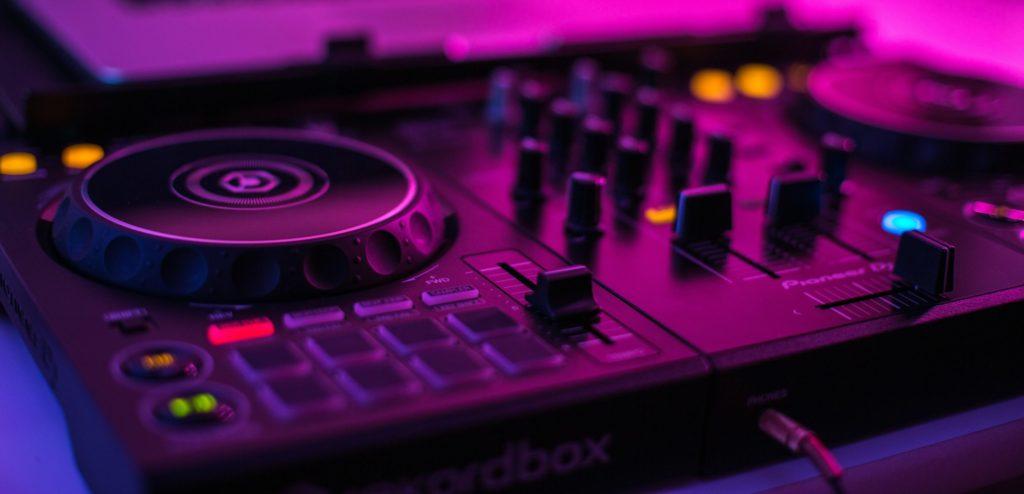
Benefits of DJ Controllers
They’re many benefits from purchasing a controller instead of a mixer. Being an all-in-one solution, it includes many features that otherwise would require more hardware. This, in the end, makes it an affordable, light, and versatile product.
All in one
The fact that you have everything you need in one device is definitely a plus. They are also portable and easy to set up, which is a clear advantage when you have to bring your equipment to a performance. Although some DJ Controllers are quite big and relatively bulky, they are lightweight if you compare them to transporting all the traditional equipment such as the mixer, turntables, CDJs, etc.
More Funtionality
Although they are not necessarily more versatile, as they don’t usually include analog inputs, they do provide more functionality. But being able to load songs directly from the computer and having extra controls to sync the tracks from a hardware device is indeed a great feature. It has the benefits and ease of mixing with computer software with the looks and feel of professional hardware.
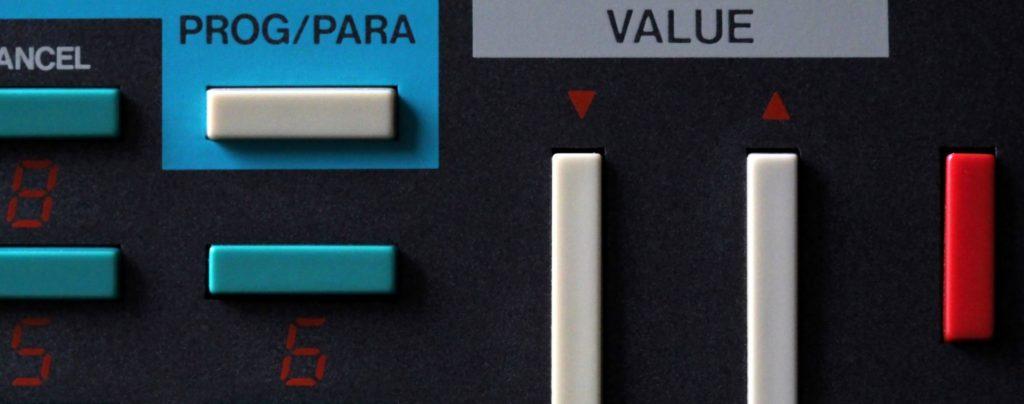
Cheaper overall
Although DJ Controllers are generally more expensive than mixers, they offer more value for the money you spend, as they provide a lot more functionality. You save money because you don’t have you buy 2 CDJs or turntables to start mixing. You only need headphones and a laptop; hopefully, you already have one! The DJ software is usually included with the controller, so you don’t really need to spend much more.
Space savers
They are generally smaller than a complete DJ Set, which is great for beginner DJs who probably don’t have much space at home. Standard setups, such as a 2 or 4-channel mixer with vinyl turntables, take up much more space than a DJ controller.
When should I buy a DJ Controller?
If you are a beginner DJ and don’t have a lot of money, it is usually better and cheaper to buy a DJ controller. It is also easier to transition from mixing using only software to mixing with a DJ controller.
First, learn how to become a DJ. And later on, you can always decide to buy a DJ Mixer and all the necessary extra equipment to improve your gear.
Key Differences Between a DJ Controller and a DJ Mixer
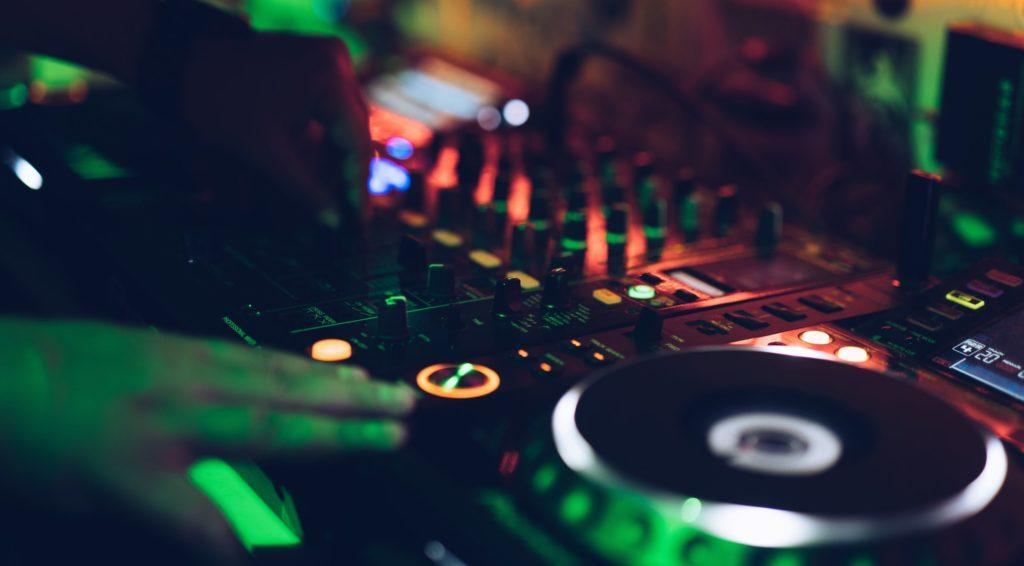
To wrap up all of the information presented above, here are the top key differences between the two devices.
- Portability – DJ Controllers wins: They are usually lighter than traditional equipment, considering you will need a couple of turntables or CDJ along with your mixer.
- Equipment Required – DJ Controller wins: DJ Mixers require extra equipment, at least two CDJs, whilst DJ Controllers only require a laptop, which can be used for many other things.
- Versatility – Tie: Both are versatile in different ways, DJ Mixers provide more versatility when mixing from different sources and more controls over the mix. On the other hand, DJ Controllers include a lot more features that control the sources directly from your device.
- Cost – DJ Controller wins: Again, although they are a bit more expensive, they are cheaper overall, considering you don’t have to purchase extra equipment.
- Autonomy – DJ Mixer wins: Mixers don’t require software or any specific device to work, they do need two audio sources, but they don’t need a laptop or DJ Software, which can be problematics in a live performance.
Conclusion
In my opinion, DJ Controllers are great for entry-level DJs. They provide a more straightforward and cheaper setup than mixers. While mixers are a little bit more affordable, you have to consider buying turntables or CDJs too. And a beginner will probably not be able to grasp the benefits of a DJ Mixer.
About the Author

Dídac
CEO & Founder of MasteringBOXDídac is a professional audio engineer, music producer and software engineer. He is the founder of MasteringBOX and the author of many of the articles on the blog.
Leave a comment
Log in to comment
